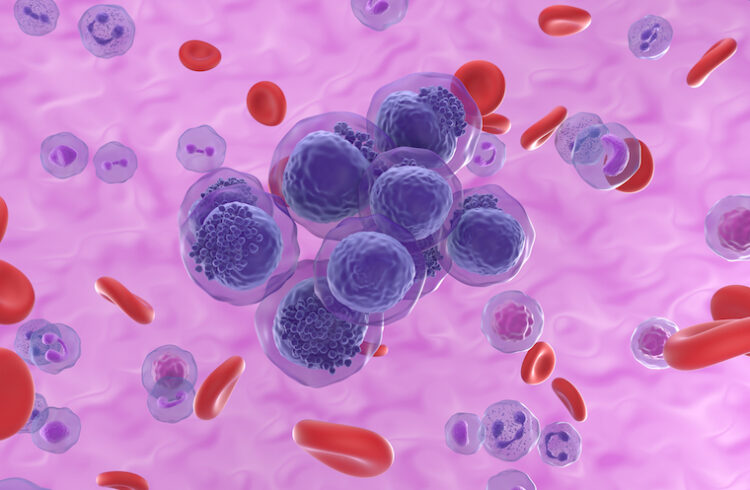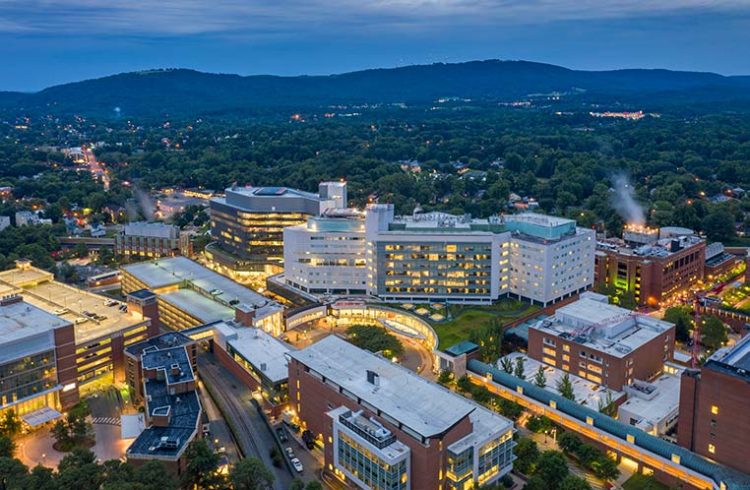
During the next two days, 260 volunteers from the University of Virginia Health System will fill a tractor trailer and their personal vehicles with medical supplies, drive 300 miles to southwest Virginia and transform the Wise County fairgrounds into a scaled-down hospital.
The thousands of people who will seek free medical, dental and vision care at the 2010 Wise Remote Area Medical (RAM) clinic, which opens at 6 a.m. Friday, will be seen in tents and barns, with temporary partitions put by volunteers. But thanks to UVA and many other contributing organizations, patients will have access to specialty care and technologies and services normally only available through hospitals. Those include emergency care, mammograms, ECGs, ultrasounds, chest x-rays, blood and urine tests, colon cancer screening, neurosurgery consultations, bone density testing, mole removal, diabetes management and access via telemedicine to other specialists. Primary care and patient education are also major components.
“The work environment at the fairgrounds is pretty primitive. The medical facility is actually a barn that’s cleaned, and we set up partitions with sheets,” said Michael Harper, MD, who serves as UVA’s assistant medical director at RAM. “In the past several years, though, we’ve been able to bring some technology to this environment. One of our cardiologists was really blown away last year when he got an echocardiogram done in less than 15 minutes, which is not easy to do in some hospitals.”
The high-tech care is enhanced in part by donations from the Verizon Foundation, which for the past eight years has provided an estimated $100,000 in grants and broadband connections for RAM. Verizon installs T1 broadband lines that enable volunteers to access the internet and send mammograms back to techs at the UVA Medical Center, who provide readings before the weekend is over so that patients quickly learn if they have anything warranting follow-up.
Three years ago, UVA began using its patient registration system at RAM to create an electronic medical record for each patient, which means patient information can be saved securely and accessed every time the patients are treated by a UVA physician. Prior to this, registration and records were all done on paper and had to be tediously sorted after the clinic and stored in one location. Verizon has awarded $88,537 in grants to support this effort, including two in 2007 and one recent $20,000 grant.
“The electronic records are a huge service for the patient, and this newest grant will help us continue those,” said Eugene Sullivan, director of UVA’s Office of Telemedicine. “Any UVA clinician can instantly access that information anywhere when following up with patients. We can look up what treatments a patient received at last year’s RAM. A clinician at RAM, if his eyes were closed, would feel like he was back here at the Medical Center, with the same technology and the same information.”
UVA’s goal, Sullivan added, is to provide care to residents of southwest Virginia not just at RAM but 365 days a year. In 2009, UVA clinicians provided more than 6,500 direct patient encounters in southwest Virginia in addition to the 5,600 patient encounters at the RAM clinic in Wise. Many of those came through UVA’s telemedicine office, which has 27 sites in this region of Virginia. Patients can go to a nearby clinic or other telemedicine site and, via television monitors and broadband connections, be seen by a specialist at the UVA Medical Center in Charlottesville. UVA telemedicine sees about 3,000 patients a year, and staff estimate that most of these patients are in southwest Virginia.
“The medical staff does everything they can to get the patient treated and on a regimen they can afford,” said Michelle Hobbs, an investigational drug services coordinator at UVA who leads the pharmacy team at RAM. “We fill 30-day supplies in order to try to help the greatest number of patients.”
Many of these medications treat diabetes, high blood pressure and high cholesterol, all common conditions among patients at RAM. Perishable medications are transported in coolers and stored in a small dorm-room style fridge at the clinic. It takes the pharmacy team about eight hours to set up the equivalent of a small pharmacy.
“Continuity of care is one of the most important aspects of RAM and one we work very hard to accomplish,” Hobbs added. “We try to bring only those medications that are on the $4 list for Wal-Mart and K-Mart.”
RAM volunteers do not ask patients about their ability to afford care or their health insurance status, but health care access research done by the Southwest Virginia Graduate Medical Education Consortium reveals that a significant portion of the population is uninsured and underinsured. Eighty-five percent of adults in southwest Virginia have health insurance, but many have deductibles of up to $10,000 per year. Just 39 percent of those with insurance have dental coverage; 81 percent have prescription coverage. Twenty-one percent of adults reported that they used health care as a last resort or “suffered it out.” Furthermore, the respondents reported higher rates than the U.S. or Virginia average for heart disease, high blood pressure, diabetes, arthritis, depression, dental problems and being overweight.
The Wise County RAM clinic will run from 6 a.m. to 6 p.m. Friday and Saturday and 6 a.m. to noon Sunday. It will offer dental, medical and vision care on a first-come first-serve basis. More than 2,700 patients were treated at last year’s clinic.


